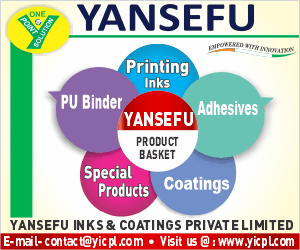
In today’s fast-paced world, innovation is constantly reshaping the landscape of various industries, and the synthetic paper manufacturing industry is no different. Synthetic paper, also known as non-tearable paper or tear-resistant paper, offers a range of unique properties that make it a viable alternative to traditional paper. With emerging trends and developments, the future of synthetic paper looks promising, with the integration of biodegradable materials and smart technologies taking center stage.
Cosmo Synthetic Paper (CSP), as a leading brand in the synthetic paper industry, stands out with its commitment to excellence and innovation. With a focus on durability, printability, and sustainability, Cosmo Synthetic Paper continues to push the boundaries of what is possible in synthetic paper manufacturing.
Synthetic paper manufacturers and suppliers are at the forefront of these advancements, continuously pushing the boundaries of what is possible in terms of durability, printability, and sustainability. Synthetic paper, often made from materials like polypropylene or polyester, offers exceptional tear resistance and water resistance, making it suitable for a wide range of applications where durability is essential. Below are some of the key trends within the synthetic paper industry.
The use of biodegradable materials
One of the key emerging trends in the synthetic paper industry is the use of biodegradable materials. With an increasing global awareness of environmental issues, there has been a growing demand for sustainable alternatives to conventional paper products. Consequently, manufacturers in the synthetic paper industry, like Cosmo Synthetic Paper, are actively exploring the incorporation of biodegradable polymers, such as polylactic acid (PLA), into their production processes.
“Cosmo First is one of the leading market players in CSP in India. With boundless uses in commercial printing, retail, and packaging – for tags and labels, identification, credentials, and outdoor display signage, CSP has created a niche for itself as a weather-proof replacement for paper in applications where durability and longevity are desired,” Pankaj Poddar, Group CEO – Cosmo Films.
By embracing biodegradable materials, Cosmo Synthetic Paper and other manufacturers aim to offer eco-friendly options that align with sustainable practices. Biodegradable polymers, such as PLA, provide synthetic paper with comparable tear resistance and water resistance properties to traditional counterparts. However, the crucial advantage lies in their ability to decompose naturally, making them compostable and reducing their overall environmental impact. This shift towards biodegradable materials represents a significant stride forward in addressing the growing concerns surrounding sustainability within the paper industry.
Capitalizing on smart technologies
Synthetic paper has witnessed remarkable development with the integration of smart technologies, marking a significant stride in its evolution. The progress in digital printing techniques, coupled with the emergence of the Internet of Things (IoT), has revolutionized the synthetic paper market. Manufacturers, including Cosmo Synthetic Paper, are now leveraging these advancements to incorporate intelligent features into synthetic paper, such as embedded sensors or RFID tags. These technological enhancements enable real-time tracking and monitoring capabilities, presenting a host of exciting opportunities in industries such as logistics, retail, and healthcare, where tracking and authentication are of utmost importance.
By integrating smart technologies into synthetic paper, Cosmo Synthetic Paper and other manufacturers have unlocked a multitude of possibilities. The incorporation of embedded sensors allows for seamless tracking of goods and assets throughout the supply chain, enhancing efficiency and minimizing the risk of loss or theft. Real-time monitoring enables businesses to gather valuable data on factors like temperature, humidity, or location, ensuring the preservation and quality of sensitive products, such as pharmaceuticals or perishable goods.
Moreover, the integration of RFID tags into synthetic paper enables efficient authentication and inventory management. These tags can store and transmit essential information, such as product details, expiration dates, or batch numbers, simplifying the verification process and improving traceability. In industries like retail, this technology facilitates streamlined inventory management, accurate stock tracking, and faster checkout processes.
Top-coated synthetic papers
Top-coated synthetic papers have experienced a surge in popularity over the past few years owing to their remarkable printability and versatility. These synthetic papers, including Cosmo Synthetic Paper, are specially treated with coatings that create a smooth and receptive surface, enabling them to accommodate a wide range of printing techniques. Whether it’s offset printing, digital printing, or inkjet printing, synthetic paper, such as Cosmo Synthetic Paper, proves to be an excellent option for various applications, including posters, banners, menus, and promotional materials.
The advantages of top-coated synthetic paper, like Cosmo Synthetic Paper, extend beyond their printing capabilities. Not only do they facilitate the production of high-quality prints, but they also offer exceptional durability. The tear-resistant nature of synthetic paper ensures that the final prints can withstand rigorous handling and environmental conditions, making them ideal for both indoor and outdoor use. By combining the benefits of enhanced printability and durability, top-coated synthetic papers, such as Cosmo Synthetic Paper, provide a visually appealing solution that caters to the evolving needs of industries requiring reliable and long-lasting printed materials. From outdoor signage to maps, synthetic paper’s ability to withstand moisture and resist deterioration makes it a reliable choice for long-lasting materials.
Recyclability – a sustainable approach
With the growing demand for recyclable materials, the need for sustainable alternatives has prompted significant advancements in the development of synthetic paper. These innovative materials, including Cosmo Synthetic Paper, have gained popularity due to their recyclability and environmental benefits. As sustainability increasingly takes center stage for both businesses and consumers, manufacturers of synthetic paper, have shifted their focus towards creating products that can be efficiently recycled.
By recycling synthetic paper, several positive outcomes are achieved. Firstly, it helps to reduce the reliance on virgin materials, which are obtained through the extraction of finite resources. Instead of depleting these resources, recycling allows for their preservation and more efficient utilization. Secondly, recycling synthetic paper also plays a crucial role in waste reduction. By diverting these materials from landfills, the amount of waste generated can be minimized, and its negative impact on the environment can be reduced. These efforts contribute to the establishment of a more circular economy, where resources are recycled and reused, reducing the overall environmental footprint.
Using synthetic paper label and packaging industry
Synthetic paper has emerged as a versatile solution in the label and packaging industry, gaining popularity due to its exceptional attributes. When it comes to labels and packaging, synthetic paper, including Cosmo Synthetic Paper, offers unmatched durability, capable of withstanding the rigors of transportation, storage, and handling. These properties make synthetic paper labels suitable for a wide array of applications, including food packaging, where moisture and humidity can pose significant challenges.
Furthermore, synthetic paper’s enhanced adhesive properties provide a reliable bond between the label and the product’s surface. This strong adhesion minimizes the risk of labels peeling off or becoming dislodged, ensuring that the necessary information remains securely attached throughout the entire lifecycle of the product. This reliability is particularly advantageous in industrial settings, where labels need to endure harsh conditions, such as extreme temperatures or exposure to chemicals.
To sum up, owing to these new trends and advancements, synthetic paper, has a promising future. A sustainable alternative to conventional paper is provided using biodegradable materials, and the incorporation of smart technologies creates new opportunities for tracking and authentication.







